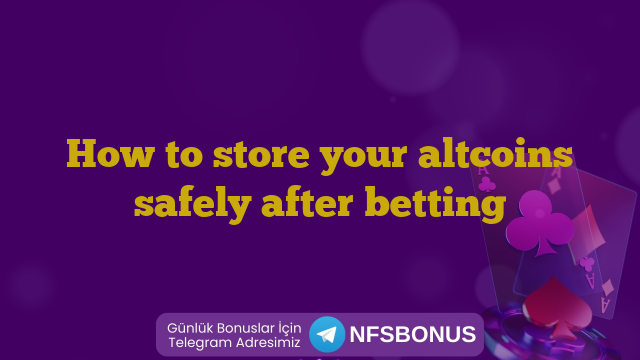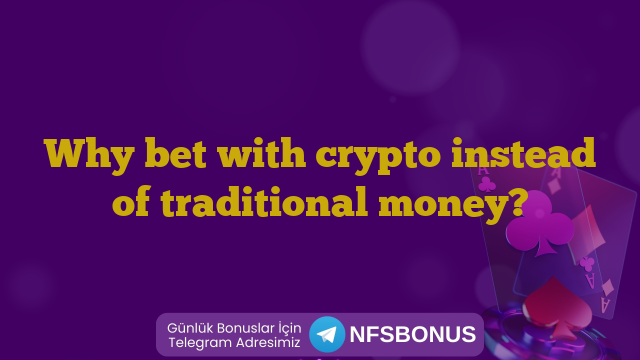Essential Tips For Safely Storing Your Altcoins
When it comes to storing altcoins securely, adopting a strategic approach is essential. Altcoins, while promising, also come with their own set of risks and vulnerabilities, making proper storage a priority for all investors. Implementing these essential tips can provide you with a higher level of security and peace of mind as you manage your digital assets.
First and foremost, always perform thorough research on the wallet options available. The choice of wallet significantly impacts your ability to safeguard your cryptocurrencies. There are multiple types of wallets, including hardware, software, and paper wallets, each with varying degrees of security and accessibility. Understanding these differences can lead you to a decision that aligns with your investment strategy.
| Wallet Type | Security Level | Accessibility |
|---|---|---|
| Hardware Wallet | High | Medium |
| Software Wallet | Medium | High |
| Paper Wallet | High | Low |
Besides wallet selection, it is crucial to implement strong passwords and two-factor authentication (2FA) wherever possible. Using a password manager can help you create unique and complex passwords, making it more challenging for unauthorized users to access your portfolio. Additionally, activating 2FA adds an extra layer of security, further protecting your assets against potential hacks.
- Key Tips for Altcoin Storage
- Choose the right type of wallet to suit your needs.
- Keep your wallet software updated to protect against vulnerabilities.
- Backup your wallet data regularly in a secure location.
- Use strong, unique passwords and enable 2FA.
- Monitor your accounts for unauthorized access frequently.
- Stay informed about potential scams and phishing attempts.
- Consider diversifying your storage methods (e.g., hardware and software wallets).
In summary, effective storing altcoins securely is a multifaceted process that requires vigilance and proactive measures. By following these essential tips, you enhance your safeguarding capabilities and decrease the likelihood of loss or theft. Always remain informed and adaptive to the changing landscape of cryptocurrency storage and security.
Understanding The Risks Associated With Altcoin Storage
When it comes to storing altcoins securely, understanding the associated risks is paramount. The world of cryptocurrency is fraught with danger, and the consequences of improper storage can be severe. Every altcoin owner should be aware of these threats to protect their investments effectively. Ignoring these risks can lead to significant losses, making it essential for users to stay informed and cautious.
Before diving into the various risks, it is crucial to acknowledge that altcoins often lack the same security protocols as more established cryptocurrencies like Bitcoin or Ethereum. This differentiation can make them more prone to security breaches and technical failures. Users must always consider the implications of how and where they store their altcoins.
| Risk | Description | Prevention Techniques |
|---|---|---|
| Hacking | Unauthorized access to wallets and exchanges. | Use hardware wallets and two-factor authentication. |
| Theft | Physically losing devices or inadvertently giving access to fraudsters. | Store devices securely and use complex passwords. |
| Market Volatility | Significant price fluctuations can lead to losses. | Diversify investments and monitor market trends. |
| Software Vulnerabilities | Exploits in software can lead to loss of assets. | Regularly update wallet software to the latest versions. |
To navigate these potential pitfalls, it’s beneficial to outline the most common risks. Here is a list of critical factors to consider when storing altcoins securely:
Common Risks to Consider
- Hacking attempts on wallets or exchanges can lead to lost assets.
- Theft of personal devices, which may contain private keys.
- Unforeseen software vulnerabilities that could compromise wallet security.
- Market volatility, which could devalue holdings unexpectedly.
- The risk of losing access to wallets due to forgotten passwords or misplaced recovery keys.
- Poor practices in managing and securing multiple wallets.
By recognizing these risks, altcoin holders can implement better strategies for maintaining the security of their assets. In the cryptocurrency market, knowledge is invaluable, particularly when it comes to keeping altcoins safe from potential threats. Staying proactive in mitigating risks is essential for any serious investor.
Choosing The Right Wallet For Storing Altcoins Securely
When it comes to storing altcoins securely, selecting the appropriate wallet is crucial. With a variety of options available, understanding the differences between them enables you to make an informed decision. Your choice of wallet can significantly impact the safety of your investments. Each wallet type comes with its own set of features, advantages, and drawbacks, which can affect your overall security experience.
Before diving into the specifics of wallet types, it’s essential to evaluate your personal needs regarding security and accessibility. Factors such as the amount of altcoins you hold and your frequency of transactions should guide your choice. This careful consideration helps in reducing risks associated with altcoin storage while ensuring ease of access when needed.
| Wallet Type | Security Level | Accessibility |
|---|---|---|
| Hardware Wallet | High | Moderate |
| Software Wallet | Medium | High |
| Paper Wallet | Very High | Low |
| Mobile Wallet | Medium | Very High |
Choosing the right type of wallet can help mitigate risks associated with your altcoin investments. Below are some of the most common wallet types that anyone considering storing altcoins securely should consider.
Types of Wallets to Consider
- Hardware Wallet
- Software Wallet
- Paper Wallet
- Mobile Wallet
- Web Wallet
- Custodial Wallet
- Non-Custodial Wallet
Now that we’ve outlined the various types, let’s delve deeper into the first two categories: hardware and software wallets. Each offers unique benefits that cater to different user preferences and security needs, making them popular choices among altcoin holders.
Hardware Wallets
Hardware wallets are often considered the most secure option for storing altcoins securely. They are physical devices that store your private keys offline, protecting them from online threats such as hacking or malware. Popular brands include Ledger and Trezor, known for their robust security measures. While hardware wallets may come with an upfront cost, the long-term security they provide can greatly outweigh this expense for serious investors.
Software Wallets
On the other hand, software wallets offer convenience and quick accessibility, making them ideal for users who frequently trade or transact. They can be found in various forms—from desktop applications to mobile apps. While software wallets are generally easier to use, they do pose more risks since they are connected to the internet. Therefore, it’s crucial to choose a reputable software wallet and implement additional security measures, like two-factor authentication.
Understanding the strengths and weaknesses of different wallet types will help you make informed choices to keep your altcoins protected.
Steps To Set Up A Secure Wallet For Your Altcoins
Setting up a secure wallet is crucial for storing altcoins securely. With the growing risk of cyber threats and hacking incidents, ensuring that your digital assets are protected is of utmost importance. It’s essential to select the right type of wallet that meets your security needs while also providing user-friendly access to your altcoins.
When you decide to establish a secure wallet, you should follow a systematic approach. This will help in ensuring that you have taken the necessary precautions to protect your investments effectively. Not only is choosing the correct wallet type important, but maintaining the security of your private keys and recovery phrases is equally vital.
| Wallet Type | Security Level | Usability |
|---|---|---|
| Hardware Wallet | High | Moderate |
| Software Wallet | Moderate | High |
| Paper Wallet | High | Low |
By understanding the features and limitations of various wallet types, you can choose one that aligns with your risk appetite. Additionally, the implementation of best practices in wallet management is crucial. To streamline the process, consider the following Step-by-Step Guide:
- Research and choose the right wallet type for your needs.
- Download the official wallet application (for software wallets) from the vendor’s website.
- Set up the wallet by following the prompts and creating a strong password.
- Backup your recovery phrase securely.
- Enable two-factor authentication (if available).
- Transfer altcoins from exchanges to your new wallet.
- Regularly monitor wallet activity for any unauthorized access.
Setting up a secure wallet is not a one-time task but an ongoing commitment to protect your investments. Always ensure that you stay updated with the latest security practices. By following these steps and being proactive, you can enhance the safety of your storing altcoins securely. Remember, the world of cryptocurrency is ever-evolving, and remaining vigilant is key to safeguarding your assets.
Best Practices For Keeping Your Altcoins Safe
When engaging in the world of cryptocurrency, particularly after betting, it is essential to focus on storing altcoins securely. The volatile nature of altcoins means that their value can fluctuate dramatically. Protecting these investments should be a priority to avoid potential losses. Adopting best practices for securing your altcoins can safeguard them against theft, hacking, and loss due to human error.
Implementing strategies to maintain the security of your altcoins is not only advisable but necessary. It is crucial to understand the different types of wallets available for storage, such as hardware, software, and paper wallets. Each type comes with its advantages and disadvantages, but knowledge about their functionality is key. Choosing the right method for storing altcoins securely significantly reduces risks.
| Wallet Type | Security Level | Usability |
|---|---|---|
| Software Wallet | Medium | High |
| Hardware Wallet | High | Medium |
| Paper Wallet | Very High | Low |
Moreover, it is advisable to implement various safety practices consistently. Storing altcoins securely doesn’t end with just having the right wallet; it also involves proactive measures to mitigate risks that could arise from external threats. Understanding the extent of cyber threats in the crypto space can help you prepare better.
Recommended Safety Practices
- Use a combination of wallets for layered security.
- Enable two-factor authentication (2FA) wherever possible.
- Keep wallet software updated to guard against vulnerabilities.
- Back up wallet information and store it in a safe location.
- Utilize strong, unique passwords for wallet access.
- Be cautious of phishing scams and unsolicited communications.
- Regularly review account activity for any suspicious actions.
By following these best practices, you can create a robust defense against potential threats to your altcoin holdings. Ultimately, prioritizing safety ensures that your investments can withstand the ups and downs of the crypto market. Knowing how to secure your assets will provide peace of mind and enhance your overall experience in the world of cryptocurrency.
Comparing The Top Wallets For Storing Altcoins
When it comes to storing altcoins securely, you have a plethora of wallet options to choose from. Each type of wallet offers different features, security levels, and usability. It’s important to compare them based on factors such as convenience, security features, and user experience. Understanding these distinctive features can help you make an informed choice to protect your investments.
| Wallet Type | Security Level | User Experience |
|---|---|---|
| Hardware Wallet | High | Moderate |
| Software Wallet | Medium | Easy |
| Web Wallet | Low | Very Easy |
| Paper Wallet | High | Complex |
Whether you are a beginner or a seasoned investor, evaluating the benefits and drawbacks of each wallet type is essential for storing altcoins securely. Some popular options include hardware wallets such as Trezor and Ledger, known for their high security. On the other hand, software wallets like Exodus or Atomic Wallet offer ease of use but come with medium security. Each wallet serves a unique purpose depending on your trading and storing habits.
- Comparison Criteria
- Security level against hacking and phishing
- Ease of use for beginners
- Supported altcoins
- Backup and recovery options
- Cost and installation fees
- Customer support and community
- Hardware compatibility (if applicable)
In conclusion, there’s no one-size-fits-all solution when it comes to storing altcoins securely. Different wallets cater to different needs, making it crucial for you to consider your individual requirements. Doing thorough research and understanding the comparison criteria will assist in finding a wallet that aligns with both your security needs and practical usage preferences.
Common Mistakes To Avoid When Storing Altcoins
When it comes to storing altcoins securely, many investors make critical errors that can lead to significant losses. Understanding these common pitfalls is essential for safeguarding your digital assets. The importance of selecting the right storage method cannot be overstated, as an oversight can mean the difference between protecting your investments and losing them altogether.
One major mistake people make is opting for insecure wallets or loopholes in software. This is particularly true for newcomers who might not fully understand the risks associated with using exchanges or online wallets, which are more prone to hacking. By relying solely on such platforms for storage, users leave their altcoins vulnerable to theft and loss. It is crucial to make informed decisions on which wallets suit your security needs.
| Mistake | Description | Prevention |
|---|---|---|
| Using Weak Passwords | Passwords that are easy to guess may compromise wallet security. | Use complex, unique passwords and enable 2FA. |
| Neglecting Software Updates | Outdated wallet software can expose users to vulnerabilities. | Regularly update wallets and software to the latest versions. |
| Ignoring Backup Procedures | Failure to back up wallet information can lead to irreversible loss. | Implement regular backup practices to secure wallet data. |
| Storing Private Keys Online | Storing private keys on cloud services increases risk. | Always keep private keys offline in secure locations. |
Another area where mistakes frequently occur is the failure to implement proper backup strategies. Regularly backing up your wallet helps ensure that you won’t lose access due to unforeseen circumstances, such as hardware failure or accidental deletion. Always keep multiple copies of your backup in different locations to mitigate risks effectively.
Pitfalls to Avoid
- Using unverified wallets or exchanges
- Failing to enable two-factor authentication
- Not diversifying storage methods
- Overlooking phishing attempts
- Ignoring the importance of security audits
- Delaying wallet migration during market volatility
Lastly, maintaining an awareness of phishing scams is crucial for anyone storing altcoins securely. Scammers often employ techniques to deceive users into providing sensitive information. It’s essential to remain vigilant and confirm the authenticity of communications to avoid falling prey to such attacks. Always ensure you are using the official website or app for any transactions or security measures.
Final Thoughts On Safe Altcoin Storage
As the popularity of altcoins continues to rise, understanding the importance of storing altcoins securely cannot be overstated. The right storage method not only safeguards your investments but also protects you against potential threats lurking in the digital space. By taking the necessary precautions, you can enhance the safety of your altcoins and enjoy peace of mind knowing that your assets are protected.
Selecting a secure wallet is paramount when it comes to storing altcoins securely. Whether you decide on a hardware wallet, software wallet, or a paper wallet, it’s essential to understand the security features and risks associated with each option. An effective wallet should offer robust encryption, two-factor authentication, and backup capabilities to provide additional layers of security for your valuable assets.
| Wallet Type | Security Features | Best For |
|---|---|---|
| Hardware Wallet | Encryption, Offline Storage | Long-term Holders |
| Software Wallet | Two-factor Authentication, Regular Updates | Active Traders |
| Paper Wallet | Physical Security, Cold Storage | Those Seeking Maximum Security |
Moreover, while choosing your wallet, regularly updating your software and conducting regular security checks are essential habits to adopt. Implementing safe practices like changing passwords frequently and utilizing strong, unique passwords for your wallets can dramatically reduce the risk of breaches. Remember, your digital safety requires ongoing diligence and informed action.
Actionable Takeaways
- Choose the right wallet based on your storage needs.
- Always enable two-factor authentication for additional security.
- Regularly back up your wallet and store it in a secure location.
- Keep your software updated for the latest security patches.
- Use strong, unique passwords for each wallet.
- Be aware of phishing attacks and avoid suspicious links.
- Consider diversifying where your altcoins are stored for extra security.
In conclusion, effectively storing altcoins securely requires a combination of smart wallet selection, constant vigilance, and adherence to best practices. By following the guidance outlined here and remaining proactive in your security approach, you can significantly mitigate risks and protect your digital assets in the ever-evolving cryptocurrency landscape.
Frequently Asked Questions
What are the essential tips for safely storing my altcoins?
To store your altcoins securely, consider using hardware wallets, enabling two-factor authentication, and keeping your private keys confidential. Always back up your wallet, regularly update software, and diversify your storage methods.
What risks should I be aware of when storing altcoins?
The main risks include hacking, loss of private keys, theft, and fraud. Additionally, storing coins on exchanges poses a risk of exchange failure or scams. Understanding these risks helps in choosing safer storage options.
How do I choose the right wallet for storing my altcoins securely?
When selecting a wallet, consider security features, user reviews, ease of use, and compatibility with your altcoins. Hardware wallets offer high security, while mobile or desktop wallets provide convenience.
What are the steps to set up a secure wallet for my altcoins?
To set up a secure wallet, first choose the type of wallet you prefer. Then, download or purchase it. Follow the setup instructions, create a strong password, and back up your recovery phrase in a secure location.
What best practices should I follow for keeping my altcoins safe?
Some best practices include using hardware wallets for long-term storage, avoiding public Wi-Fi when accessing wallets, updating software regularly, and enabling two-factor authentication to enhance security.
How do I compare the top wallets for storing altcoins?
To compare wallets, evaluate security features, compatibility with various altcoins, ease of use, backup options, and the reputation of the wallet provider. Reviews and user feedback can also help in the comparison.
What are common mistakes to avoid when storing altcoins?
Avoid using weak passwords, neglecting to back up your wallet, keeping funds on exchanges for too long, and sharing private keys with others. Also, beware of phishing scams that aim to steal your wallet credentials.
What are the final thoughts on safe altcoin storage?
Safe altcoin storage requires diligence and awareness of security practices. Always prioritize security over convenience and invest in reliable storage solutions. Regularly review your storage methods to adapt to changing security landscapes.





